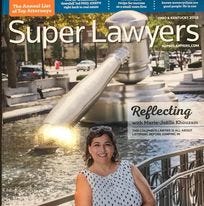FTC’s Nationwide Non-Compete Ban: What It Means for New York Employees
On April 23, 2024, the Federal Trade Commission (FTC) took a groundbreaking step to promote fair competition by issuing a final rule that bans non-compete agreements nationwide. This significant change is set to impact approximately 30 million American workers, including many in New York, by safeguarding their right to change jobs, fostering innovation, and encouraging new business ventures.

Key Takeaways: Federal Non-Compete Ban
- Effective Date: The nationwide ban will take effect 120 days after publication in the Federal Register, expected around September 4, 2024.
- Invalidation of Existing Non-Competes: Most existing non-compete agreements will be unenforceable after the rule’s effective date.
- Notice Requirement: Employers must notify workers, except Senior Executives, that they will no longer enforce non-competes.
- Scope of Coverage: The ban applies to employees, independent contractors, volunteers, and even sole proprietors providing services.
- Non-Solicitation Clauses: These may still be enforceable if they are narrowly tailored and not overly restrictive.
- Exceptions: The rule does not apply to non-competes linked to the sale of a business or agreements with Senior Executives.
Impact on New York Employees
New York has its own set of employment laws regarding non-competes, but this federal rule will preempt state laws that conflict with it. However, New York can still enact stricter laws that go beyond the federal rule’s protections.
Senior Executives Exemption
Senior Executives, defined as individuals in policy-making positions earning $151,164 or more annually, are exempt from the nationwide ban. This exception means that non-competes for such executives may still be enforceable.
What About Other Restrictive Agreements?
The FTC’s rule does not directly address other restrictive agreements like non-disclosure agreements (NDAs) or non-solicitation agreements. However, these may still be enforceable if they don’t function as a de facto non-compete.
State Laws vs. Federal Rule
The nationwide ban sets a minimum standard, but state laws that offer greater protection will still stand. For example, New York could impose stricter limitations on non-competes.
What Should You Do Next?
For business owners and workers in New York, understanding and complying with the new rule is crucial. Non-competes in severance agreements, settlement agreements, and other forms are also covered under this ban.
Need legal advice? Contact the NYC Employment Lawyers at Mansell Law for expert guidance on the enforceability of restrictive agreements and how to navigate this new legal landscape.
Comments
Post a Comment